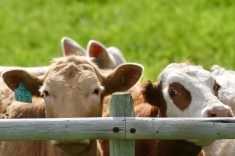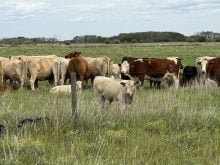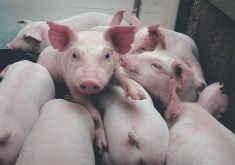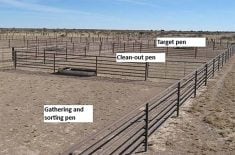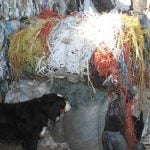Researchers at Lakeland College are examining the effectiveness of a supplement in calves and lambs to improve neonatal health and immunity.
Depending on the results of the two-year trial, they could soon offer producers information on the best management practices to increase profitability, animal health and welfare by increasing neonatal health.
“Hopefully long-term, we can reduce the disease and illness in calves and thereby reduce the use of antibiotics,” said Dr. Brenda Ralston, livestock research scientist at Lakeland College.
The neonatal supplement project, which began during the winter, received a $642,000 grant from the federal government.
Read Also
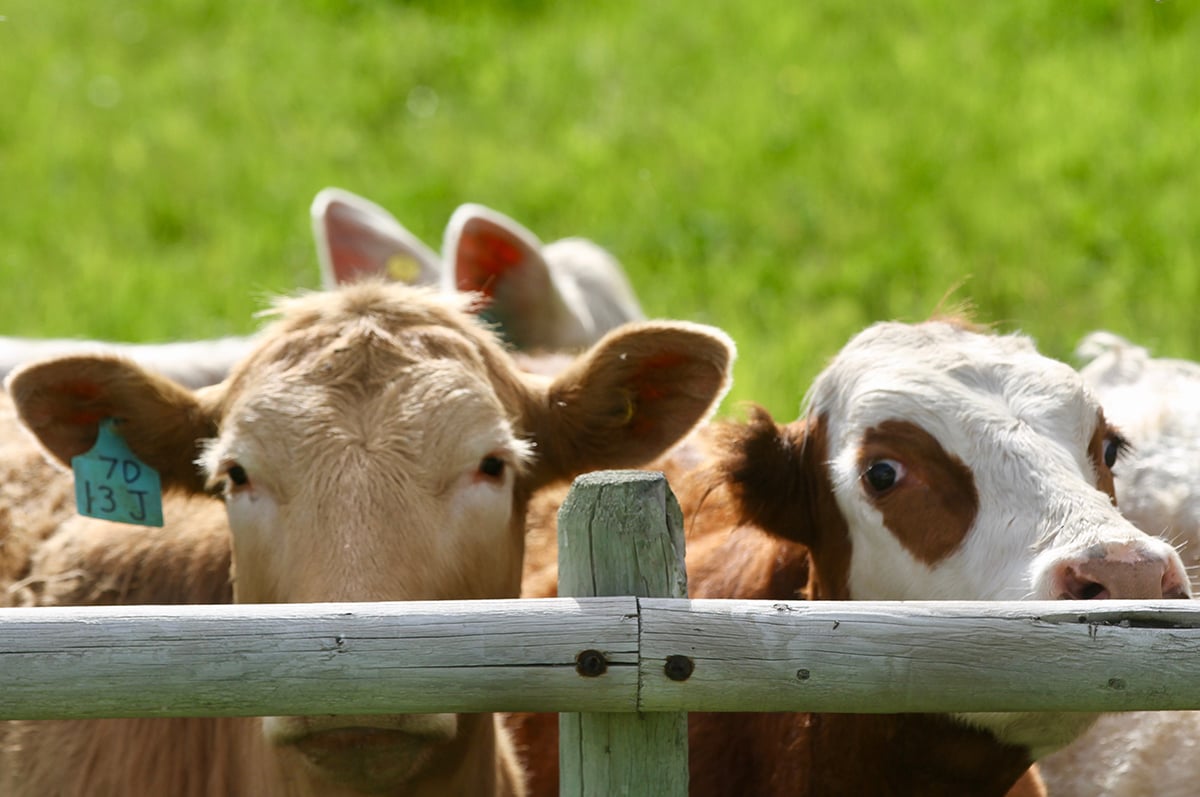
Feeder market consolidates at historic highs
For the week ending Sept. 6, Western Canadian feeder cattle markets were relatively unchanged compared to seven days earlier.
“It helps to encourage and promote collaboration between the colleges and private industry to work together to provide new technologies, in this case the livestock industry. A large component of that is having the students integrally involved in the research so that they learn new skills that are applicable to industry when they graduate,” said Ralston, who was the recipient of the Alberta Farm Animal Care 2022 Award of Distinction.
Industry partners include Alberta Veterinary Laboratories/Solvet, Chinook Contract Research and Vermilion area cow-calf producers.
The project is using Vitaferst, an oral supplement that provides newborns with iron, selenium and vitamins A, D3, E and B12.
Ralston said milk is a poor source of iron, and the levels of vitamins A, E and selenium supplied in colostrum may be low. Vitaferst is formulated to increase these levels.
“The nutritional status of those calves at birth is what helps them to develop their immune system and we want all calves and lambs to develop very competent immune systems because that’s what keeps them healthy through their life,” she said.
Ralston said it’s a common misconception that newborn calves, low in these nutrients, will catch up after a few weeks.
“That immunocompetency may not catch up as quickly as we think, so if we can supply them with the proper nutrients at birth, hopefully they’ll develop competent immune systems. And then when they come under stress, like when they’re weaned and put into feedlots, hopefully they’ll be able to deal with that and we won’t have to be using things like antibiotics,” she said.
Students and staff were trained on how to pull blood samples from the animals and were further educated in ruminant nutrition.
Blood samples were taken at calving time from both cow and calf to determine nutrient levels.
Half of the calves received the Vitaferst supplement and the control group was given saline. Blood samples were taken again three weeks later for both groups.
Blood samples were also taken from beef calves and lambs owned by area producers.
“We wanted a large sample set because there’s not a lot of information on neonatal supplement levels in their blood or their nutrient levels,” said Ralston.
“We wanted to pull from a variety of herds so we’ll be doing this again next spring.”
Blood samples are now being analyzed but the Calgary-manufactured oral supplement could be a game changer, said Denis Nagel, veterinarian and one of the lead investigators for the project with Alberta Vet Labs and Solvet.
He said Vitaferst replaces injections for vitamin A and D, as well as vitamin E and selenium.
“It’s way easier because it’s one squirt in the mouth versus two injections in the neck,” said Nagel.
Added Ralston: “It’s a great sustainability tool on a number of fronts, producing even healthier cattle and more efficient livestock and so I think that’s a good news story for everyone.”




